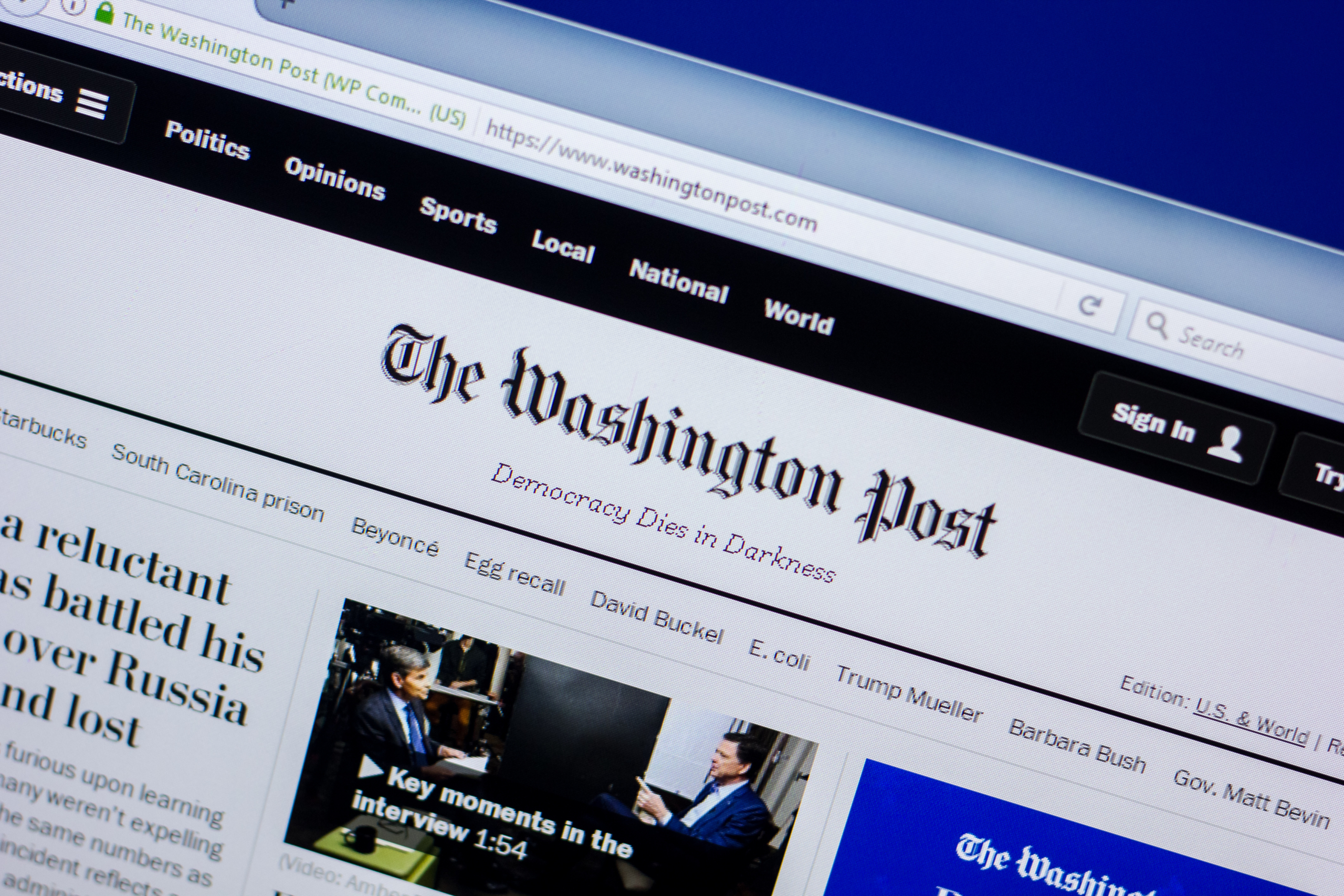Sign up for The Media Today, CJR’s daily newsletter.
Serious, soul-searching postmortems by media outlets are usually reserved for periods after clear fuck-ups. The Washington Post’s ombudsman dissecting how Janet Cooke was able to fabricate a Pulitzer-winning story; the New York Times admitting its coverage helped lead us into the Iraq War; the Kansas City Star apologizing for decades of racist journalism.
The end of the Trump administration cries out for a more thorough accounting. Millions have embraced the refrain of “fake news,” and reporting has lost ever more ground to rank propaganda. A lightweight TV star and publicity hound who lied constantly was able to coast into the most powerful job in the world on the strength of free media coverage, while simultaneously undermining public faith in that very same media for the most nakedly self-serving purposes. Surveying the civic wreckage of the past four years, it is hard not to feel that journalists, somehow, collectively blew it.
So how did the Post do? Practically speaking, it did just fine. It’s been publishing top-tier stories the whole time, from David Fahrenthold’s 2016 work on the Trump family’s charity scams straight through to this past weekend’s Amy Gardner scoop of Trump’s jaw-dropping phone call attempting to coerce the Georgia secretary of state to “find” him some votes. The Post has done tons of good stories on the Trump campaign, the Trump White House, and Trump himself over the past four years. For most of the paper’s journalists, the only real question about Trump’s departure is whether it means they can finally get a little rest. (The answer is no.) The problem the Post as an institution faces is that all of that reporting has stopped having a meaningful effect on a large portion of the country. And that is a much, much knottier issue.
“A lot of my work involves talking to voters,” says David Weigel, who covers politics for the Post, “and I had never gotten so much feedback from them about where I worked as I did in the Trump years. Liberals would frequently thank me for ‘what I do,’ so I’d assure them that they really wanted to thank Carol Leonnig or Juliet Eilperin or Rosalind Helderman or David Fahrenthold. Conservatives would often lecture me about why people no longer trusted the mainstream media, something I was sort of used to, but that got far more intense—like, people turning me down for a quote, then photographing my badge and tipping their friends off not to talk to me.”
All the while, Weigel says, the way the Post worked stayed the same as ever. “The same reporters who were breaking news on Trump had done so on Obama, and I’d argue that there was a more robust effort to really understand Trump voters than there has ever been to understand a political base before. But when the president polarizes how people view the media, there’s only so much we can do.”
Newspapers have always been both observers of and participants in high-level political maneuvering—witness Judith Miller’s role in selling the Iraq War—but under Trump, the potential for a single lazy headline to become a part of the country’s swirling ideological warfare was higher than ever before. For the Post, Trump’s ceaseless dishonesty has made the crafting of every headline into a painstaking exercise, seeking not to use a shorthand phrase that might be misinterpreted to lend credence to the latest false thing coming out of the president’s mouth.
It would be foolish for burned-out reporters and editors to imagine that this state of affairs will calm entirely after Inauguration Day, though at least there will be a lower risk that the president of the United States screams at you on Twitter about your work on any given day.
So what can we as an industry, and the Post as an institution, do?
Political reporters roll their eyes when politicians, who are constantly engaged in devious machinations and backstabbing, say boring and unhelpful things like “I’m just here to uphold my oath to my constituents.” Likewise, media reporters tend to sigh in exasperation when the leaders of major news outlets, which are inexorably bound up in ever-shifting professional and ideological power struggles, say things like “Holding government accountable—that’s what we have done over the last four years, and that’s what we’ll do in the next four years,” which is exactly what Post editor Marty Baron said on CNN a couple of weeks ago when asked for some insight on this topic. (None of the top editors on the Post masthead would comment further.)
I find this unwillingness to delve into the infinite gripes, feuds, and plans for revenge that have developed over the past four years to be rather annoying. But I must also admit that Baron is right. The best thing the Post can do is to follow his advice to the letter: cover Trump aggressively; cover Biden aggressively; cover every powerful politician aggressively, and try to reveal as much truth as possible, because that, ultimately, is what the press does.
Yes, it sounds corny, pat, and unexciting. Yet all the soul-searching over the institutional response of journalism to a post-truth, “fake news” world leads back to this. News outlets can deliver accurate information to the public. They cannot grab the public by the throat and shake it out of a misguided belief in politically motivated lies. That is an important job for American society, but it is not the job of the Post.
The very best course of action the Post can take in the post-Trump era is to continue publishing good stories. Any deviation from that reinforces the screeching of the Trumpists. And whenever the hypnotic hold of Trump begins to wear off, it’s important that real journalism still be there, waiting.
Has America ever needed a media defender more than now? Help us by joining CJR today.



